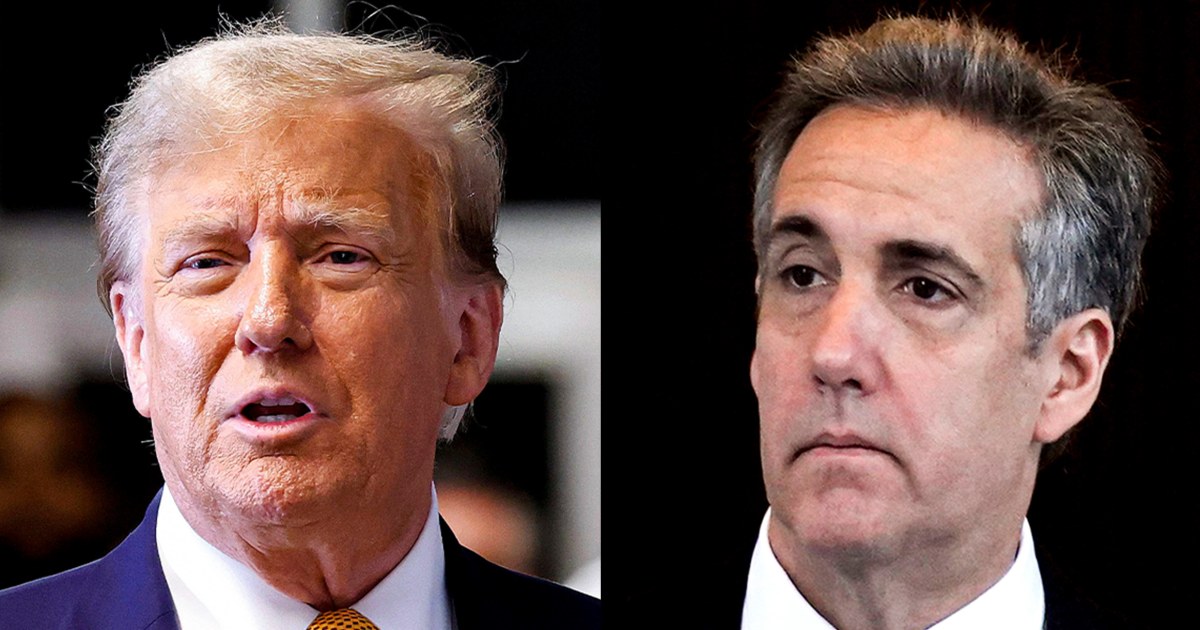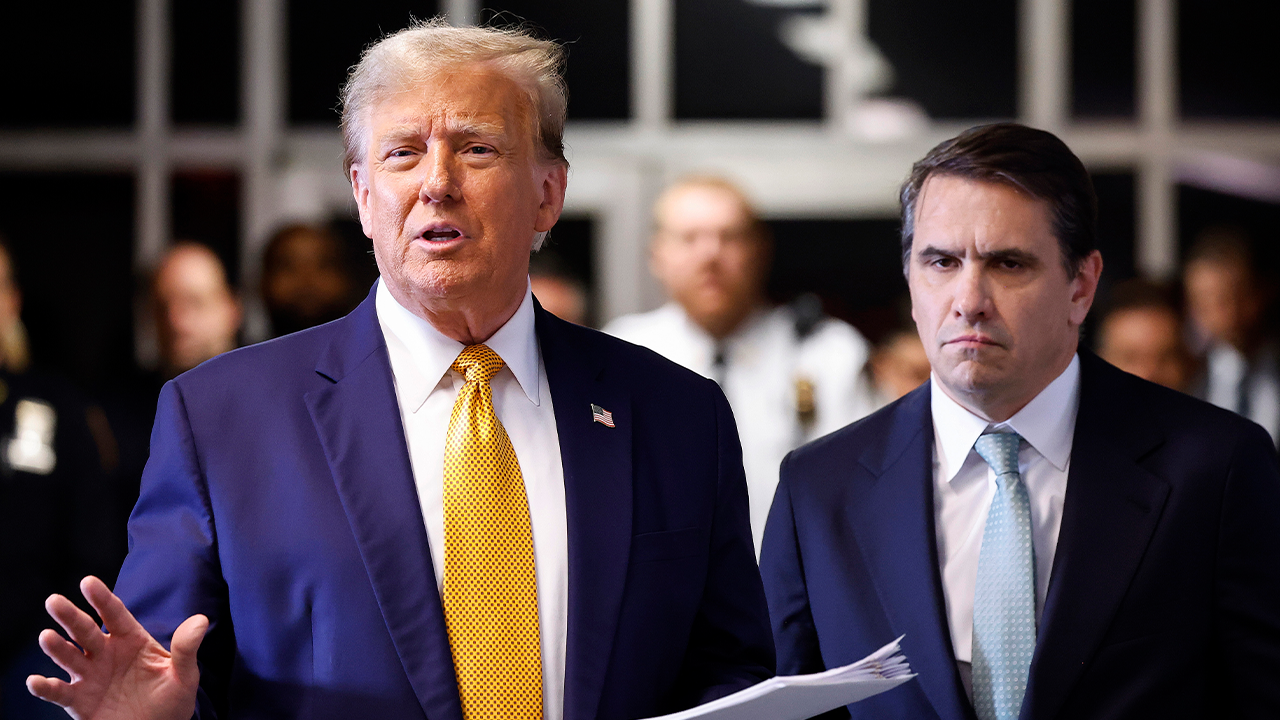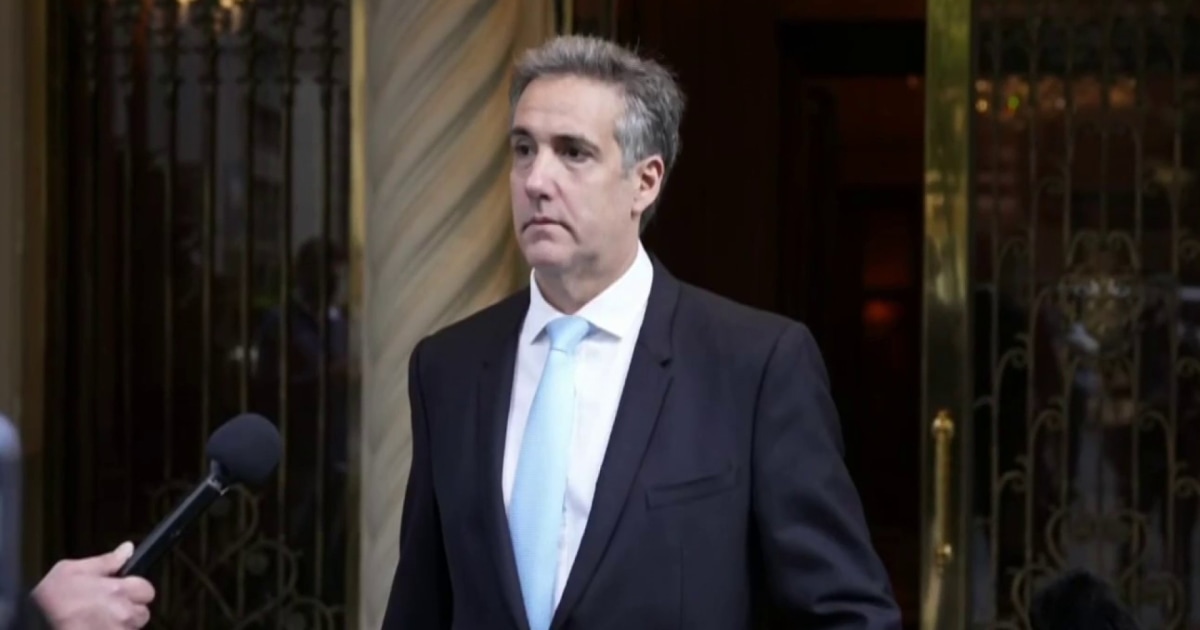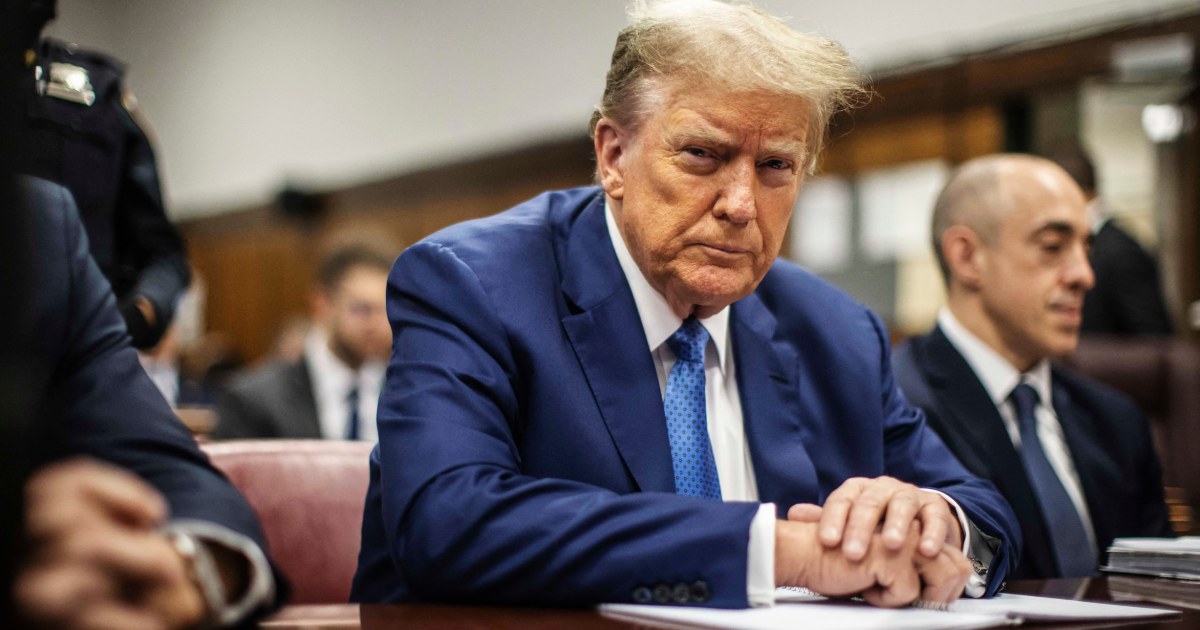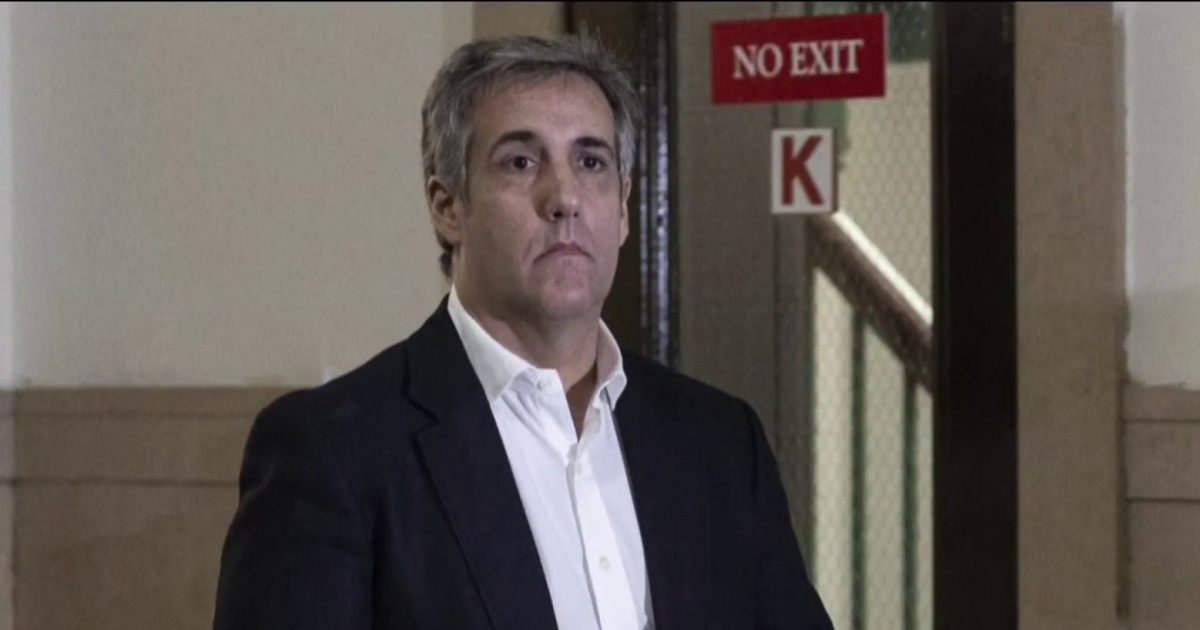Michael Cohen will be back on the witness stand in Manhattan criminal court Thursday to resume facing off against Donald Trump’s defense attorney as the historic criminal case against the former president nears an end.
Prosecutors told Judge Juan Merchan this week that Cohen, Trump’s former personal lawyer, is their final witness in the often-sensational trial, which began on April 15.
It’s the first criminal trial involving a former president, but Trump lawyer Todd Blanche didn’t begin his cross-examination of Cohen on Tuesday in highbrow fashion.
“After the trial started in this case, you went on TikTok and called me a ‘crying little s—,’ didn’t you?” he asked.
“Sounds like something I would say,” Cohen responded.
Blanche then peppered Cohen with questions designed to show he has a documented history of lying — and a strong bias against his former boss. Blanche asked Cohen if he’d said in the same April 23 TikTok that Trump belongs in a “cage, like an animal.”
“I recall saying that,” Cohen said.
Cohen, 57, is a pivotal witness in Manhattan District Attorney Alvin Bragg’s case against Trump. It was Cohen who paid adult film actor Stormy Daniels $130,000 in the closing days of the 2016 presidential election to keep her quiet about her claim of having had a sexual encounter with Trump a decade earlier after they met at a celebrity golf tournament. Trump denies her claim.
Prosecutors say then-President Trump reimbursed Cohen in a series of payments that were falsely recorded as legal expenses in a bid to hide what they were really for.
In testimony this week, Cohen said Trump had directed him to deal with Daniels’ claims because he feared they could be a “total disaster” for his campaign. Cohen said Trump assured him he would pay him back, and later told him to work out the details with then-Trump Organization chief financial officer Allen Weisselberg.
When news of his payment to Daniels became public in 2018, Cohen said Trump encouraged him to take full responsibility for the hush money deal, which Cohen did.
Asked why he’d taken those actions and others aimed at suppressing scandalous Trump stories during the 2016 election, Cohen said he’d done so “at the direction of” and “for the benefit of Donald J. Trump.”
Cohen is the only witness to directly tie Trump to the alleged falsifying business records scheme.
Blanche told jurors in his opening statement that Trump’s payments to Cohen were for legal work, and that Cohen “cannot be trusted” because he has a history of lying and an ax to grind against his former boss.
Cohen has acknowledged lying in the past — including to Congress, for which he pleaded guilty in 2018 — but maintains he was motivated by what was then his strong desire “to protect Mr. Trump.”
Blanche said in court Tuesday that he anticipated that his continued cross-examination would take most, if not all, of Thursday. The defense’s questioning of Cohen on Thursday will focus on his previous testimony under oath and his repeated lies about events in 2016 and 2017, according to a source with direct knowledge of what to expect during cross-examination.
Court is not in session Friday in order for Trump to attend his son’s high school graduation; so if Blanche’s estimate is correct, Cohen would likely return to the stand on Monday for additional questions from prosecutors, followed by additional questions from Blanche before the prosecution rests.
It’s unclear at this point if Trump will put on a defense case. Blanche told the judge this week that he may offer some testimony from an expert if he determines it’s necessary to do so. Court filings show that expert is Bradley A. Smith, a former Federal Election Commission chair who could testify about the FEC and its function, laws that the agency is responsible for enforcing, and definitions and terms that relate to the case.
The other possible witness is Trump himself. Trump said before the trial began that he would “absolutely” testify in the case, but has since said he’d do so if necessary. Blanche told the judge on Tuesday that he did not know if his client would take the stand.
If he does not, that would pave the way for closing arguments early next week.
Trump has pleaded not guilty to 34 counts of falsifying business records. He faces up to four years in prison if convicted.




